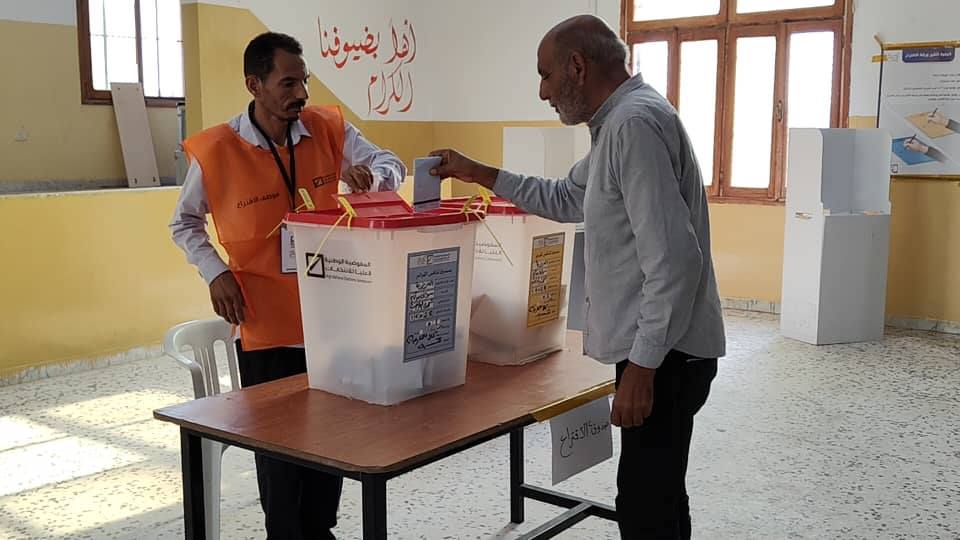Tripoli – The polling process for the second group of municipal council elections began this morning, Saturday, at 9:00 AM in 26 Libyan municipalities, marking a new step on the path to consolidating local democracy and the peaceful transfer of power.
In a statement from its board, the High National Elections Commission (HNEC) announced that these elections are the culmination of the preparatory stages completed by most of the targeted municipalities, which originally numbered 63, making them eligible for the voting phase.
However, the statement pointed to significant security challenges affecting the process in several areas, including blatant attacks targeting the electoral administration offices in both Zawiya and Al-Ujailat.
The statement also revealed the suspension of the electoral process in another 27 municipalities due to “successive suspension directives” issued by security agencies under the authority of the Libyan government, with no clear indication from the commission about the possibility of their resumption in the near future.
The HNEC board strongly condemned these attacks, describing them as an “agenda adopted by the forces of darkness and instability” that seek to “sideline the people and distance them from decision-making circles.”
Despite these obstacles, the commission expressed optimism about the participation levels witnessed in the previous stages of the electoral process, considering them clear evidence of “a rising level of awareness among citizens and their realization of the importance of participating through peaceful and civilized means.” It affirmed that what has been achieved so far, within a non-ideal environment fraught with risks and disinformation campaigns, is a success by all measures.
In concluding its statement, the commission made a direct appeal to male and female voters in the 26 municipalities to head to the polling stations in large numbers to cast their votes freely and secretly. It stressed that laws and regulations guarantee this right and urged them to ignore disinformation campaigns aimed at spreading negativity and resisting the positive change that Libyans aspire to in order to end the prolonged transitional phase.
